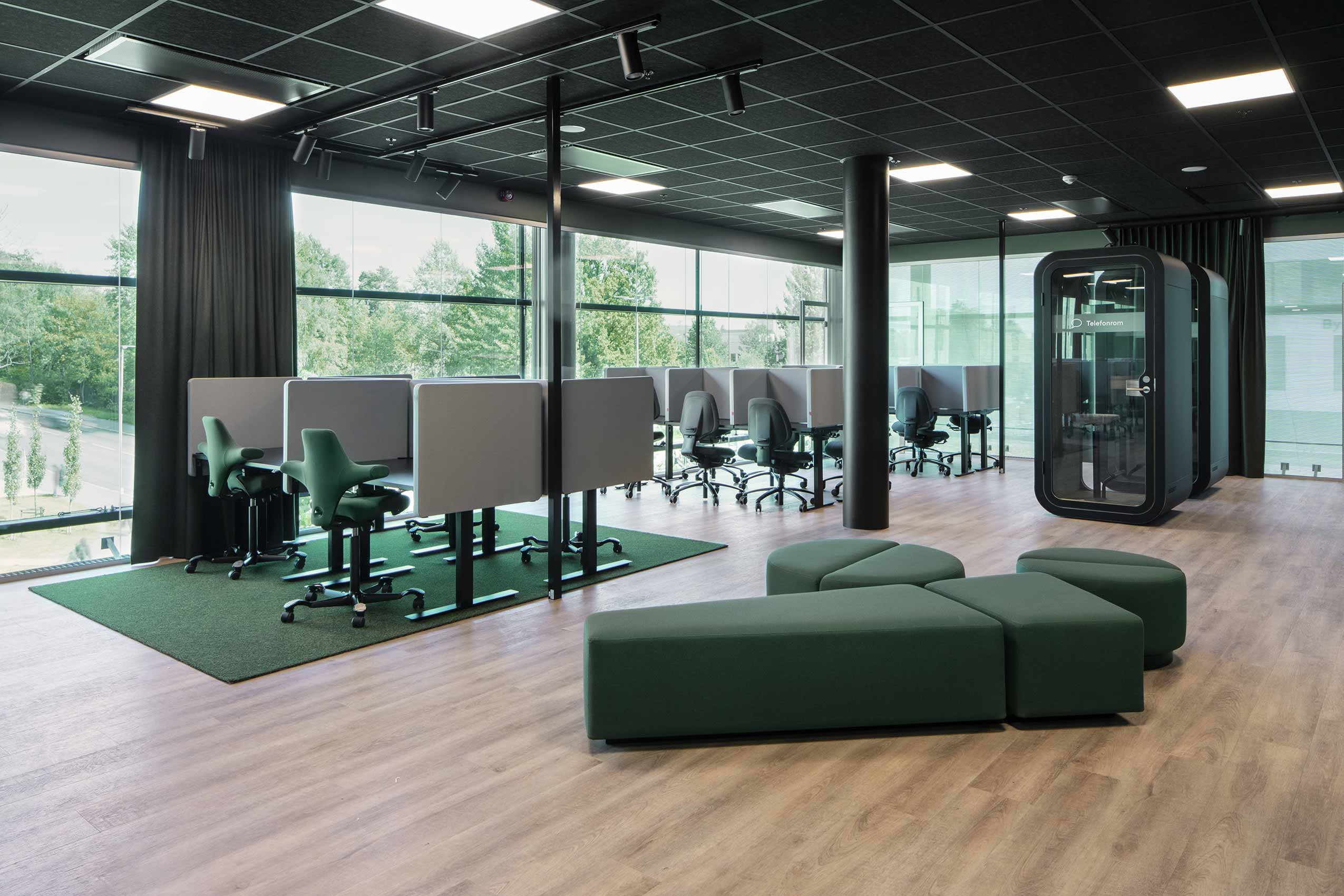
The OBOS 'local hub' - Community-based office work environments
Norwegian home builders OBOS unveil the ‘OBOS local hub’, a community work hub providing flexible workspaces to bridge the gap between the home and the office in the suburbs of Oslo. We explore the reasons behind and benefits presented by this new addition to the workspace ecosystem.
- Design
- Sustainability
- HÅG
- Profim
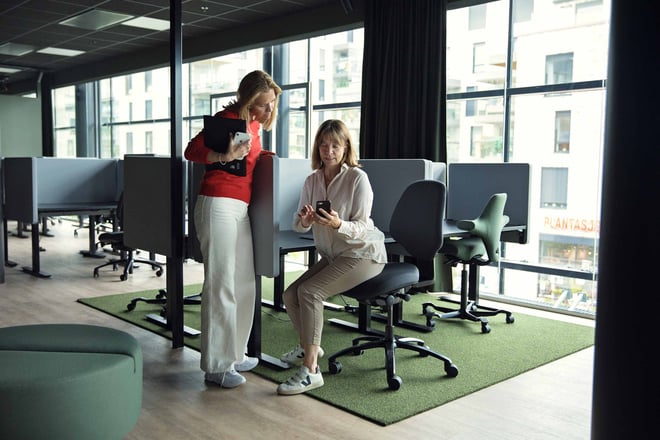
The OBOS local hub (Nærkontoret) is a network of decentralised office premises located at the access roads to Oslo, in neighbourhoods developed by OBOS, close to where many people live. Whilst the concept has been bubbling away in the innovation department at OBOS for several years, the events of 2020 meant that the benefits of such a workspace became even more apparent, and the appetite for a local place to work has grown significantly.
“The idea was born many years ago,” said Daniel Kjørberg Siraj, the Director of OBOS, who was speaking at a webinar launch of the OBOS local hub. "OBOS is building a lot of housing on the peripheral parts of towns, and one of the challenges is to contribute to building a good town life. We wondered, "Can we make an office similar to the big gyms?" where you can buy a monthly pass or a daily pass and go in and work. People get to know each other and you build a better home community, whilst enabling us to utilise our business locations in a better way."
In Norway, there is a formal requirement that the ground floor buildings within towns must be utilised by businesses – this is to ensure places to work, and places to eat, shop, and work in relatively local and convenient locations to homes. Traditionally these have mainly been shops, with also private companies setting up offices. The changing attitudes of office workers have led OBOS to fast-track their local hub scheme to provide space for workers unwilling to give up the advantages of remote work whilst removing the disadvantages.
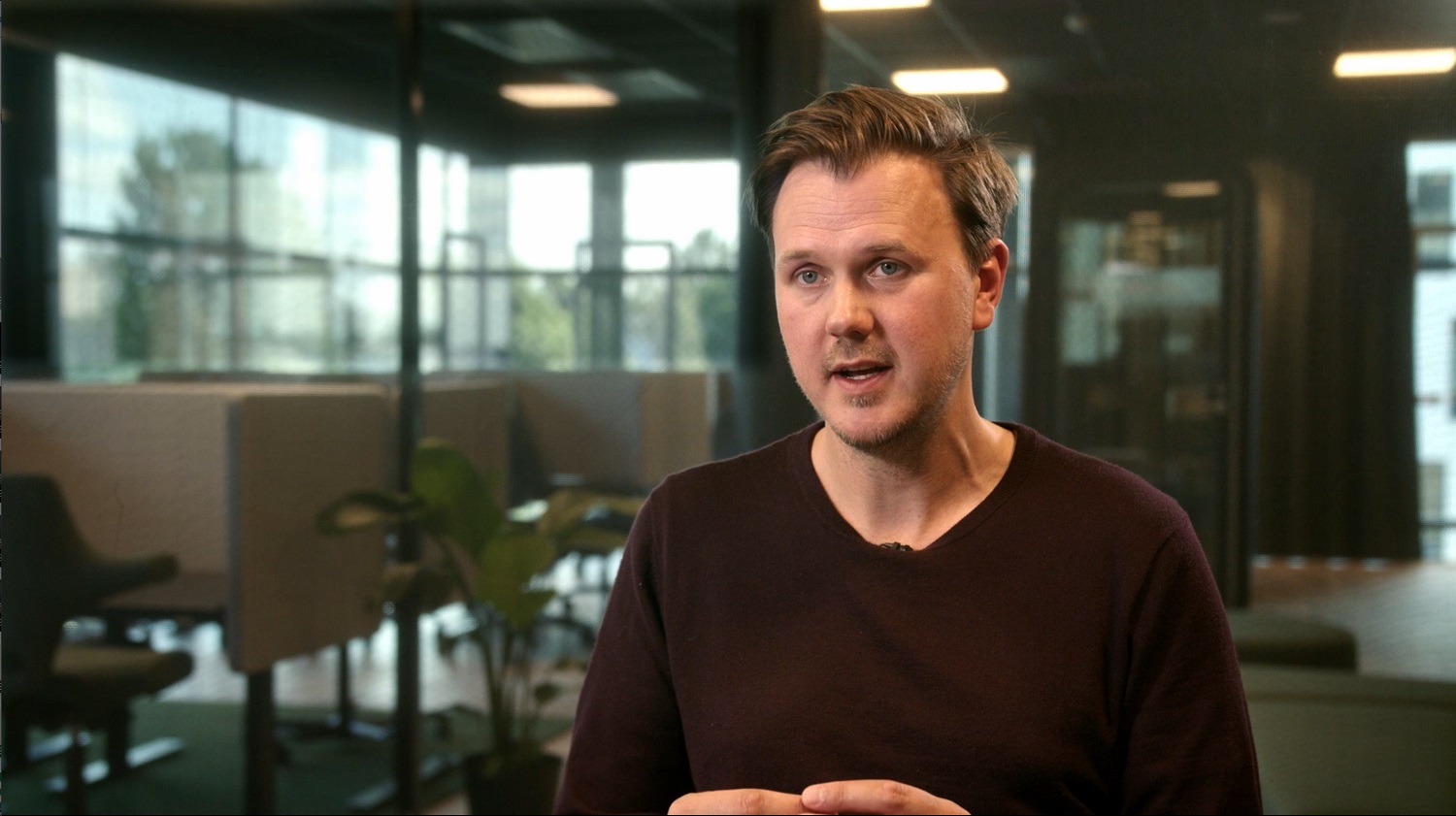
"The OBOS local hub wants to provide flexibility to companies that want to have a more productive workforce, and happy employees with a better work life balance." Says Espen Lindkjølen, Project manager at OBOS local hub, "They will be available for those who need to work outside the main office and who doesn’t want to work from their kitchen counter."
A survey of remote workers by OBOS found that 54% had found it difficult to separate their work and private life due to working from home, whilst 27% felt more lonely. On the other hand, 29% felt more productive in their home environment with 41% saying they felt like they had more spare time. Overall 80% of those surveyed suggested they would like a place to work from that wasn’t their main office, but somewhere more local. The results of the survey emboldened the team at OBOS to push ahead with their plans, with 6 to 7 of these local hubs planned in the near future.
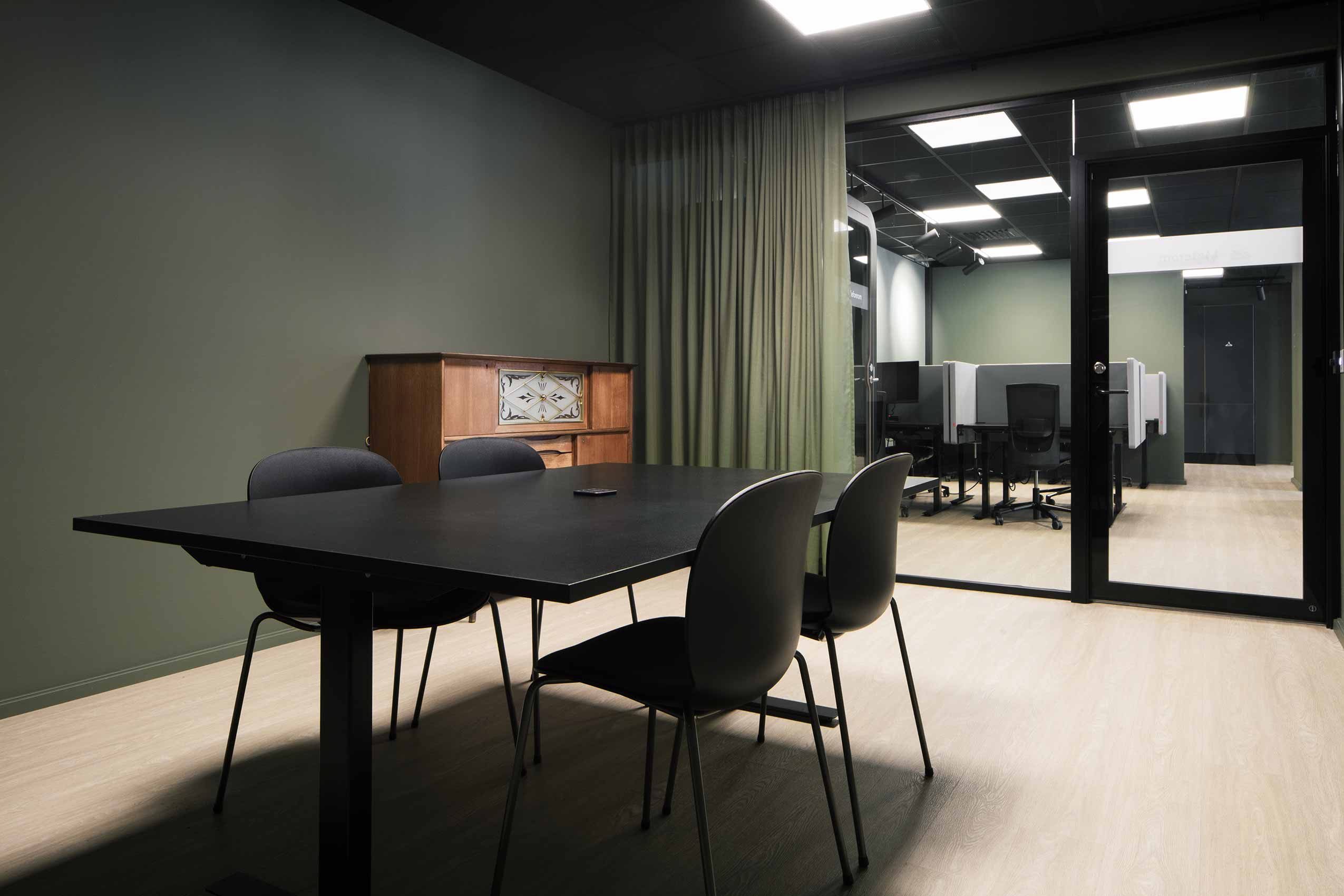
The OBOS Hub features a range of practical work environments, including small meeting rooms (left) and indiviudal workstations (right) designed to provide a comfortable and productive workspace closer to home than the company office. | Featured: RBM Noor 6050SB
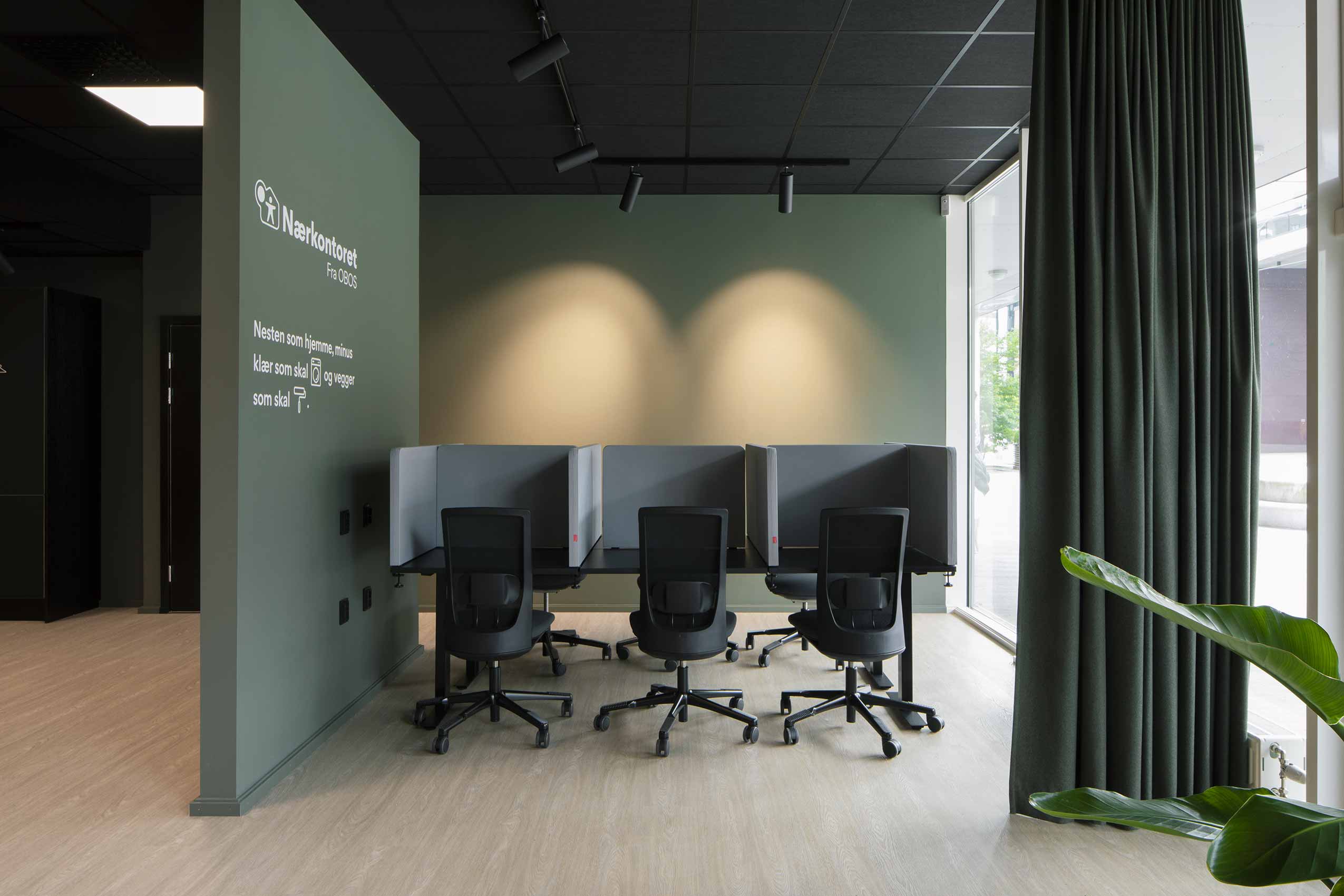
Featured: HÅG Futu 1100-S
Sustainable workspaces
Making the workspace as sustainable as possible was a key consideration when it came to fitting out the workspaces, which is why OBOS has teamed up with GoGood, a furniture supplier and interiors expert who provide offices with a reuse and replace system. The company offers a wide inventory of products that have been reconditioned to be as good as new, sourcing locally made designs that have passed their standard life expectancy, giving them care and maintenance. They also offer a digital service that makes it easy to keep track of, maintain and replace furniture when the needs of the workplace change. The system also makes it easy to extract environmental accounts for the company’s sustainability reporting.
Explaining the story behind the start-up, GoGood interior designer Camilla Gjerset says; "We wanted a concept with products and furniture with a high standard of quality and durability but also flexibility for all the users’ needs. When we started planning we asked ourselves “What is it people don’t have at their home office?” A good seating situation - a good chair and a good desk - was the most important."
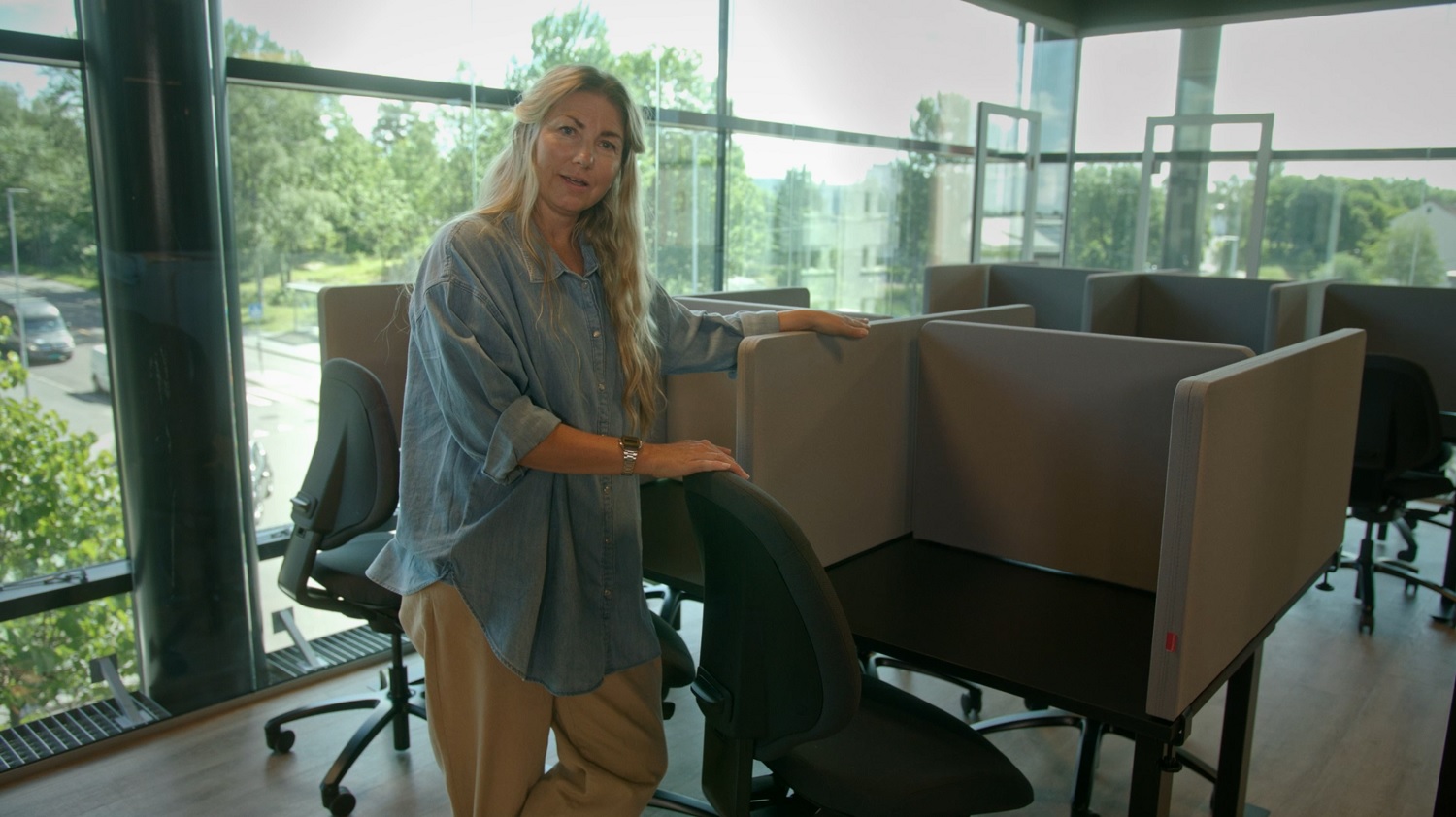
With a majority of Flokk pieces designed for disassembly, with long life, and made from sustainably sourced materials, they are a natural partner for GoGood. Many popular Flokk pieces of furniture are part of the GoGood inventory and indeed feature in the first set of OBOS local hubs. HÅG Capisco chairs are located in the individual workstations for focused desk-based work, as well as RH Mereo chairs. RBM Noor chairs are located in social and rest spaces.
Each of the pieces of furniture was colour matched to the various environments, using textiles not only with warm and inviting hues but environmentally friendly. Cura, by Gabriel, is a two-coloured fabric made from 98% post-consumer recycled polyester offering a warm and casual aesthetic with high stretchability, durability and made using no heavy metals. available in 36 colours, there was plenty of choice to find the exact colour to match to the OBOS environments.
Camilla; "We wanted to make a colour statement in each hub and we decided to use HÅG Capisco chair, in blue, green, and red. We are really happy that HÅG could provide us the fabric and colours we wanted, and it fits perfectly into the atmosphere."
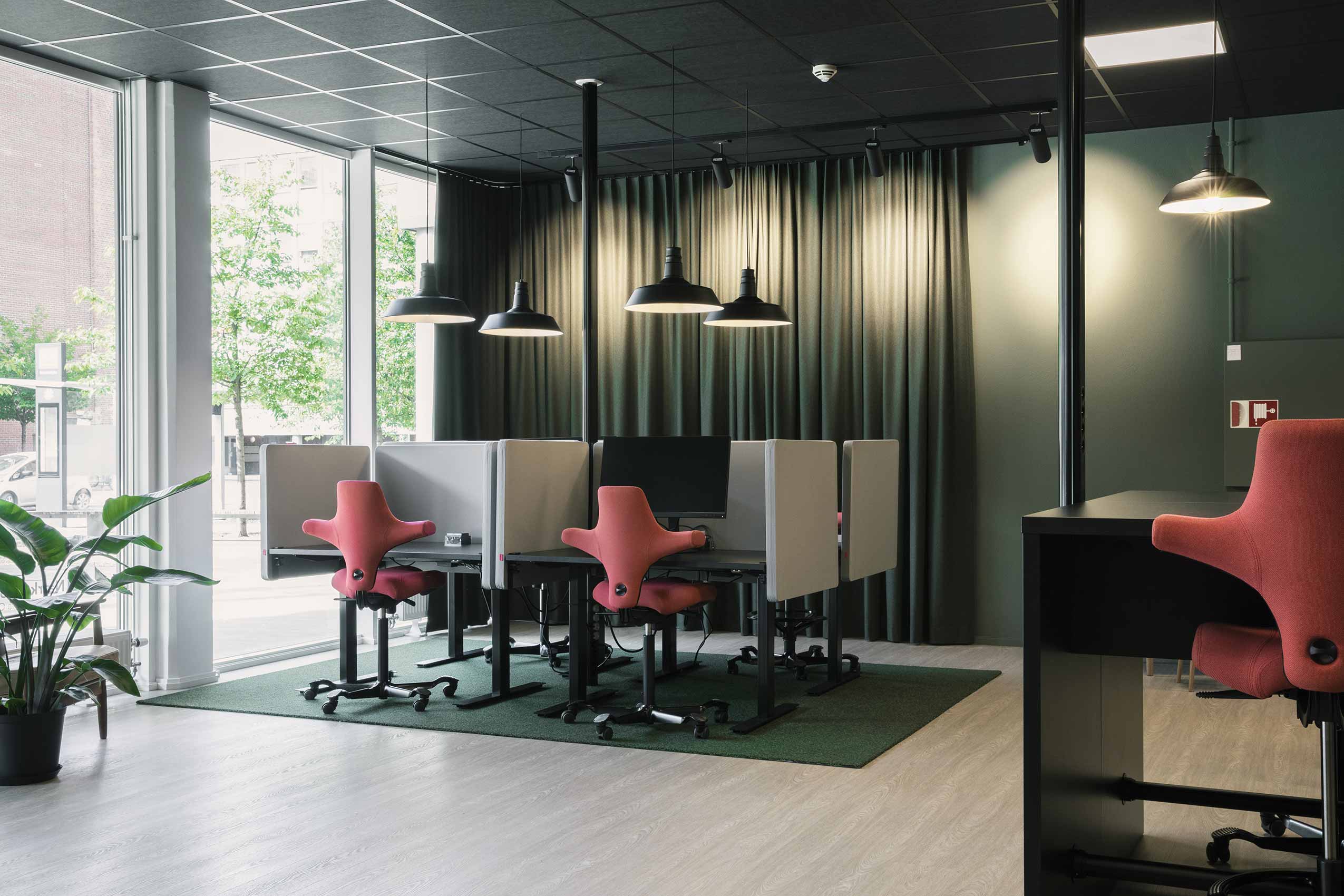
Featured: HÅG Capisco 8106
"Airbnb for offices"
Their environmentally friendly approach also extends to a partnership with the real estate management app Orbit, which aims to help reduce the building of unnecessary commercial real estate. They estimate up to 50% of office space is free at any one time, but a complicated web of long leases, fluctuating office occupancy, and other overcrowded offices mean that new workspaces are continually built at the expense of the environment.
“We have created a completely new business model on how to utilize and use office space in a better format,” says Wasim Rashid, head of the Orbit concept, who was also speaking at the Webinar launch. “I think the home office will flourish. Nevertheless, there will be a need to meet in small groups for a long time to come.”
The Orbit app aims to match up free space with company needs, thereby reducing the cost for companies leasing property and reduce the environmental pressure caused by building more commercial real estate. The inclusion of the OBOS local hubs will provide companies, and individuals access to the workspaces in a convenient and time-efficient way.
"The OBOS local hub is about sustainability in different ways. It’s about reducing travel time, commuting and rush hour traffic, and it’s about a better use of existing commercial property. And it’s also about teaming up with great companies like GoGood and Orbit Technology, which in many ways have the same vision for the future office."
Understanding the role of future workspace ecosystems
The creation of Local Hubs is just one of several ways the world of office work is shifting towards a more decentralised platform. In our latest whitepaper, we take a look at the new workspace ecosystems taking shape, including localised 'hub' offices, and explore the benefits and opportunities presented to both employers and employees.
.png)
This might also interest you
A deeper look at the history behind the HÅG x Recouture Collab
Learn how åkle developed across Norway, why the motifs look the way they...
HÅG x Recouture : Heritage craft for a design icon
Learn how Recouture give traditional Norwegian åkle new life, in...
HÅG SoFi – now available in tumbled aluminium
Extending the beauty of tumbled aluminium to HÅG SoFi — versatile,...